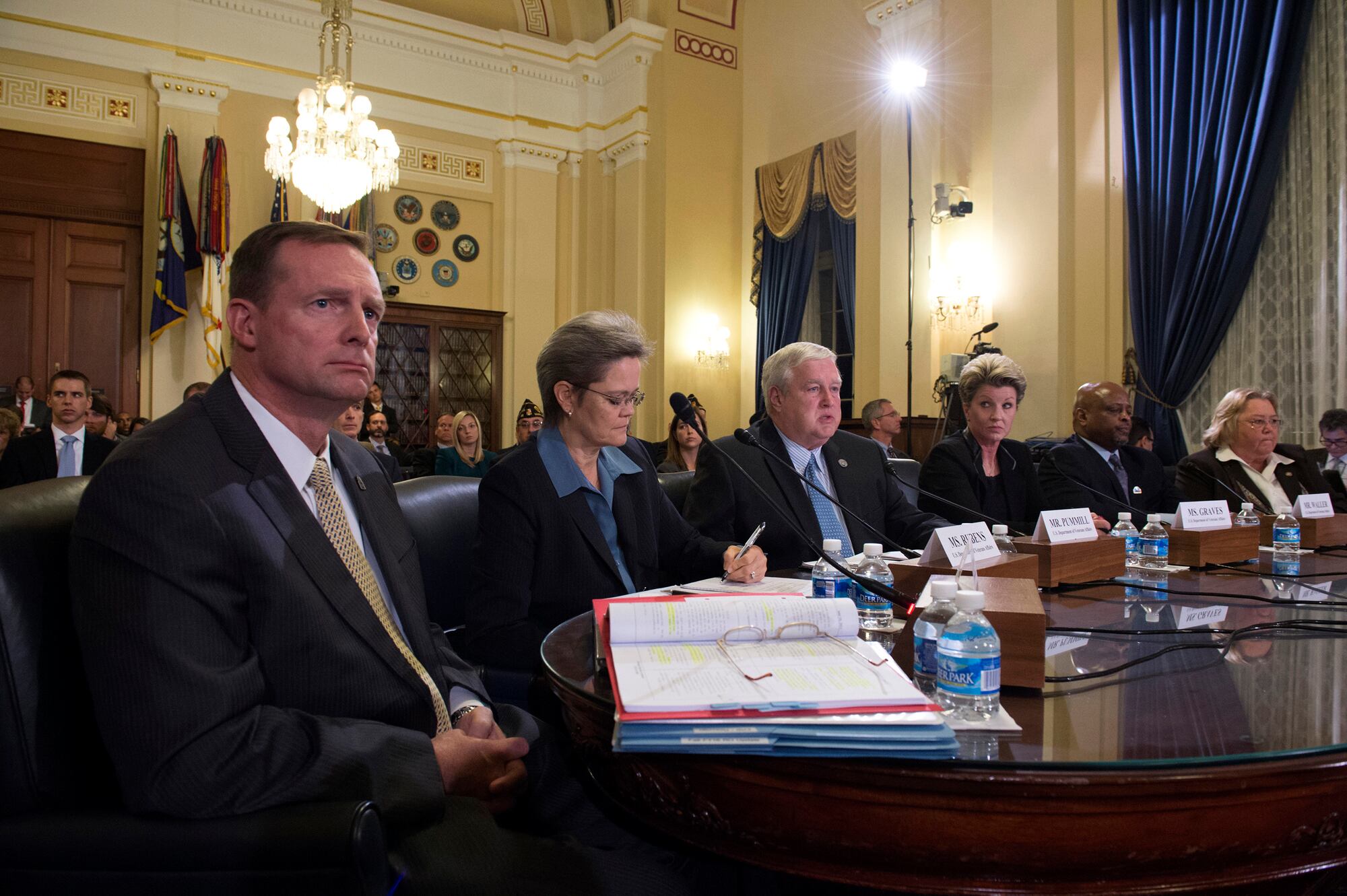House Veterans Affairs Committee members on Monday evening finally got the five VA witnesses they demanded last month, but they didn't get many new answers on the department's ongoing relocation bonus scandal.
Two women officials at the heart of the latest department embarrassment refused to answer any committee questions on their alleged schemes to game the bonus program for personal gain, instead invoking their Fifth Amendment rights against self incrimination.
Three other department witnesses also subpoenaed by the congressional panel painted a picture of a flawed employee reassignment process but not the systemic, corrosive corruption that several lawmakers have accused top department officials of allowing to fester.
"If I could go back in time, I still would have made all the moves," said VA's acting Undersecretary for Benefits Danny Pummill. He blamed the "second and third order" problems of the bonus program on the department moving too quickly to get the right people in posts that needed immediate improvements, to better help veterans.
The VA inspector general sees the problems differently.
At issue are findings from an IG investigation that senior executives misused interoffice moves to bump up their pay while reducing their job responsibilities, at a significant cost to taxpayers. The Veterans Benefits Administration spent more than $1.5 million on 21 questionable senior executive reassignments over the past three fiscal years.
The investigation was spurred by two specific cases. Philadelphia VA Regional Office Director Diana Rubens stands accused of getting more than $288,000 in moving expenses compensation to switch from a job in nearby Washington, D.C., and St. Paul, Minnesota, VA Regional Office Director Kimberly Graves received nearly $130,000 in a similar job switch scheme.
Both women were forced to appear before the committee, and both refused to answer any questions on the advice of their lawyers.

Subpoenaed witnesses from the Department of Veterans Affairs, from left, Los Angeles Regional Office Director Robert McKenrick, Philadelphia and Wilmington Regional Offices Director Diana Rubens, Principal Deputy Under Secretary for Benefits Danny Pummill, St. Paul Regional Office Director Kimberly Graves, Baltimore Regional Office Director Antione Waller, and Department of Veterans Affairs Deputy Inspector General Linda Halliday appear at a Veterans Affairs Committee hearing on Capitol Hill on Nov. 2 in Washington.
Photo Credit: Molly Riley/AP
Pummill said both women have been informed of punitive actions the department intends to take against them, but exactly what that entails won't be made public until the end of the week.
But the IG report blamed the problems not on a few greedy individuals but a pattern of problems with VA's use of the relocation program, with senior executives using the incentives to get around moratoriums on pay raises or to get raises for jobs with fewer responsibilities.
Committee chairman Rep. Jeff Miller, R-Fla., bluntly stated that "my suspicion is that this kind of behavior is rampant not only throughout VA but also the rest of the government."
The hearing touched on not only the alleged relocation improprieties but also ongoing accusations at the center of a number of fights between Congress and VA officials: improper record keeping, missing response to congressional inquiries, poor accountability of senior executives, and mismanagement at regional offices.
Both sides have accused the other of trying to politicize the issues, even as they repeatedly insist the executive and legislative branches still have a healthy working relationship.
Pummill replaced longtime Benefits Undersecretary Allison Hickey, who resigned a few weeks after the IG report recommended possible administrative action against her for poor oversight of the relocation program.
VA officials insisted her Hickey's departure was not in response to the report, but she declined committee requests to testify about the latest scandal.
Department officials have suspended the program pending a full review of past awards and oversight procedures. Deputy Inspector General Linda Halliday told committee members that numerous fixes are needed, but the most critical move will be punishing individuals found guilty of abusing the program.
Miller repeated his concern at Monday's hearing that top VA officials aren't focused enough on that type of response.
"If VA put half of the effort into pushing for true accountability or protecting their employees who come forth as whistleblowers as they have for the individuals investigated in this IG report, then I honestly think the department would be in a much better place," he said.
Leo covers Congress, Veterans Affairs and the White House for Military Times. He has covered Washington, D.C. since 2004, focusing on military personnel and veterans policies. His work has earned numerous honors, including a 2009 Polk award, a 2010 National Headliner Award, the IAVA Leadership in Journalism award and the VFW News Media award.





